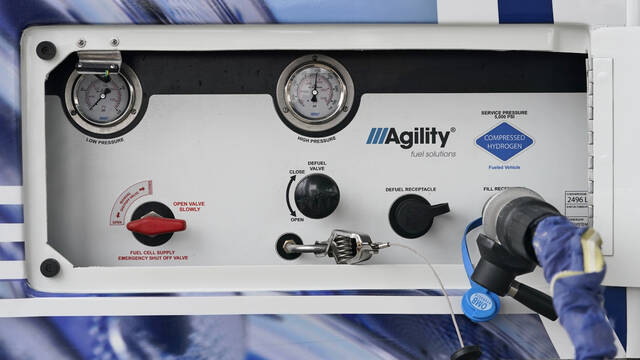Michelle Naccarati-Chapkis and Anita Prizio: Opening the door to people-based economic development in Western Pennsylvania
They say that, when one door closes, another opens.
Western Pennsylvania lost its bid for a regional hydrogen hub this October as the Decarbonization Network of America (DNA) hydrogen hub project failed to win federal funding from the Department of Energy. It’s a hit to business leaders and the oil and gas industry, perhaps, but many families in the region are likely releasing a sigh of relief. Producing methane-based hydrogen with carbon capture is shown to be enormously expensive — even raising taxes and spiking energy bills — and potentially devastating to nearby communities. That’s assuming the commercially unproven technology works at all.
At the very least, DNA’s failure opens the door to new opportunities for Southwestern Pennsylvania. And it’s worth considering a new approach to regional economic development that shows lots of promise. It’s a model that’s shown to grow jobs by centering families and communities rather than corporate interests.
Here’s how it works. Investing in things such as community amenities (such as recreation opportunities, cultural activities, good schools and transportation options) and energy efficiency upgrades (such as installing insulation, heat pumps or more efficient appliances) makes our homes and neighborhoods better places to live. They create jobs for local workers, who then spend their money at local stores and restaurants, kicking off a virtuous cycle of economic growth.
These community-focused “quality of life” investments are shown to have a greater impact on population growth, job growth and poverty reduction than traditional investments that cater to businesses and corporations. Research from Ohio State University shows these sectors have higher “multiplier effects” than the oil and gas industry, as well.
In other words, every dollar invested in quality of life upgrades makes a splash throughout the area’s economy. When you hire a local renovator to weatherproof drafty windows, for example, you’re supporting economic activity within your community. That renovator might grab dinner at a diner down the block, tipping a new waiter who then spends part of his paycheck at a nearby clothing store.
Scaling these chains of investment in local stores and businesses can have a serious economic impact. And federal grant funding can provide tax credits for things such as weatherproofing, improved heating and cooling systems and other efficiency upgrades across entire communities, raising property values, lowering energy bills and making our homes more comfortable, all while spurring growth across the local economy.
In comparison, a dollar invested in the oil and gas industry — or the blue hydrogen industry, for that matter — barely makes a ripple. Most of that dollar goes to capital: the drill rigs, pipelines and other infrastructure that extract and transport the gas. A few jobs might be created, but they tend to be taken by out-of-state workers who spend their paychecks elsewhere. Most of the profits from gas extraction also leave the local economy, lining the pockets of executives who live far from the air and water pollution stirred up by their operations.
The path to opportunity is clear. It’s the path that winds through our communities, that connects neighbor to neighbor, and invests in people, not faceless corporations. Southwestern Pennsylvania lost the hydrogen hub. But that doesn’t mean we’re out of options. Together, we can create good, family-sustaining jobs that can lay the foundation for a thriving economy in our region. All we need is the leadership to take the first step.
Michelle Naccarati-Chapkis and Anita Prizio are members of Allegheny County Council.
Remove the ads from your TribLIVE reading experience but still support the journalists who create the content with TribLIVE Ad-Free.

